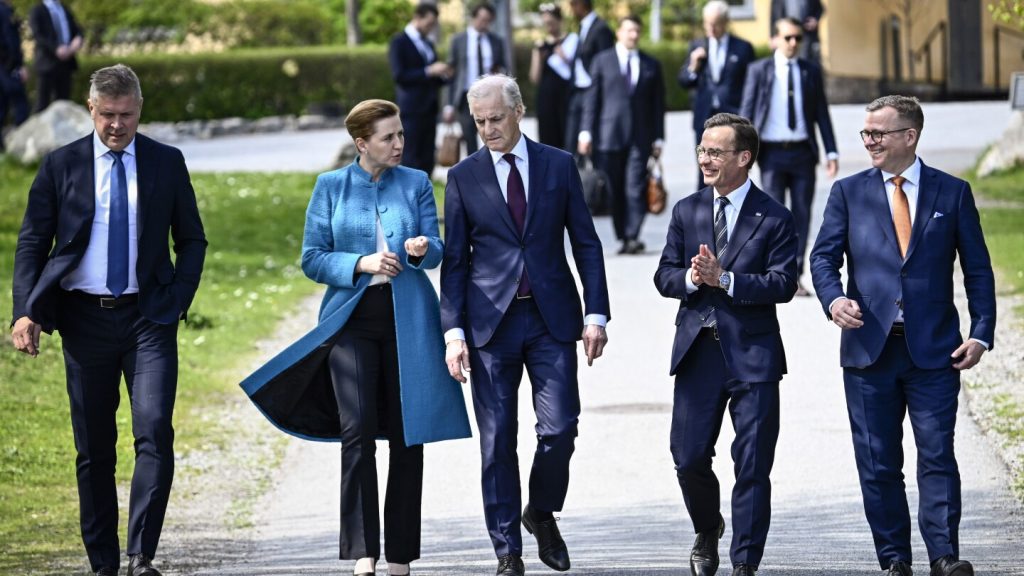At a meeting in Stockholm, Swedish Prime Minister Ulf Kristersson emphasized the importance of Nordic and Baltic cooperation in the face of increasing security threats from Russia following its invasion of Ukraine. German Chancellor Olaf Scholtz and the Nordic prime ministers gathered to discuss security policy and NATO’s upcoming summit in July. Kristersson highlighted the need for operational cooperation among neighboring countries, noting that Sweden and Finland recently joined NATO, a move that significantly impacted Europe’s security landscape.
The Baltic prime ministers, meeting in Vilnius, Lithuania, reaffirmed their support for Ukraine despite Moscow’s attempts to intimidate them. Danish Prime Minister Mette Frederiksen expressed concern about the evolving security situation in Europe, stating that the era of peaceful coexistence may be coming to an end. With Russia’s aggressive actions, the Nordic and Baltic countries are preparing to address defense, forestry, climate, migration, and security issues through joint efforts and regional alliances.
The Baltic Sea region has become a focal point for NATO’s expanding presence, with member countries surrounding the area, including access to key Russian territories such as St. Petersburg and the Kaliningrad enclave. The alliance’s strengthened position in the strategically important region marks a significant shift in Europe’s security dynamics. Leaders from Sweden, Denmark, Norway, Finland, and Iceland are working together to address common challenges and enhance their collective defense capabilities.
In discussions with regional counterparts, Swedish Prime Minister Kristersson emphasized the importance of addressing security threats from Russia, as well as other key domestic and international issues. The Baltic Council of Ministers, consisting of leaders from Estonia, Latvia, and Lithuania, reiterated their commitment to supporting Ukraine and standing up to Russian aggression. The Baltic countries recognize the need for unity in Europe to ensure peace and stability in the region.
Estonia’s Prime Minister Kaja Kallas highlighted Russia’s shadow war against European countries and emphasized the importance of not succumbing to fear. The Baltic leaders emphasized the need for Russia to lose the war in Ukraine for the sake of European security and global order. They acknowledged the growing threat of conflict in their neighborhood and called for solidarity and resilience in the face of current challenges. The Baltic countries remain steadfast in their support for Ukraine and their commitment to upholding European values and principles in the midst of geopolitical tensions.
The Nordic and Baltic countries are navigating a complex security environment marked by Russia’s aggressive actions and escalating tensions in the region. As they strengthen their cooperation within NATO and the EU, these countries are working together to address common threats and challenges, from defense and security to climate change and migration. The commitment to supporting Ukraine and countering Russian aggression underscores the shared values and interests of the Nordic and Baltic countries in promoting peace, stability, and security in Europe.


